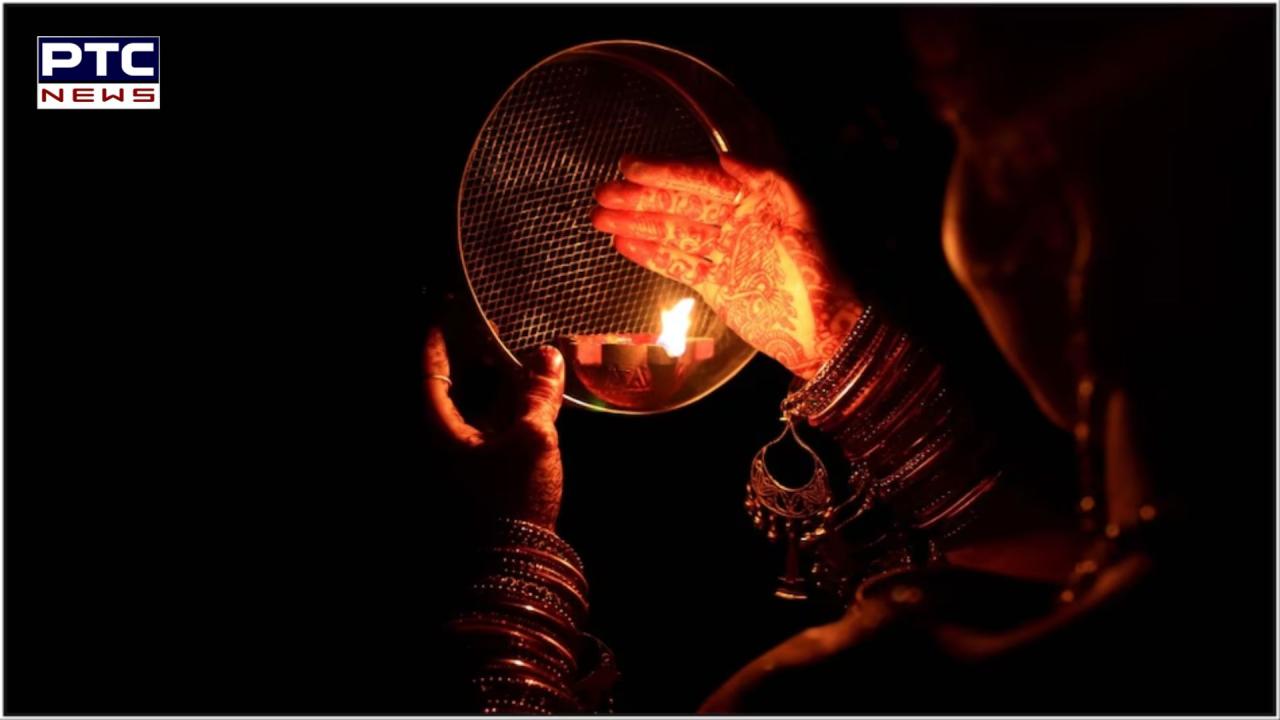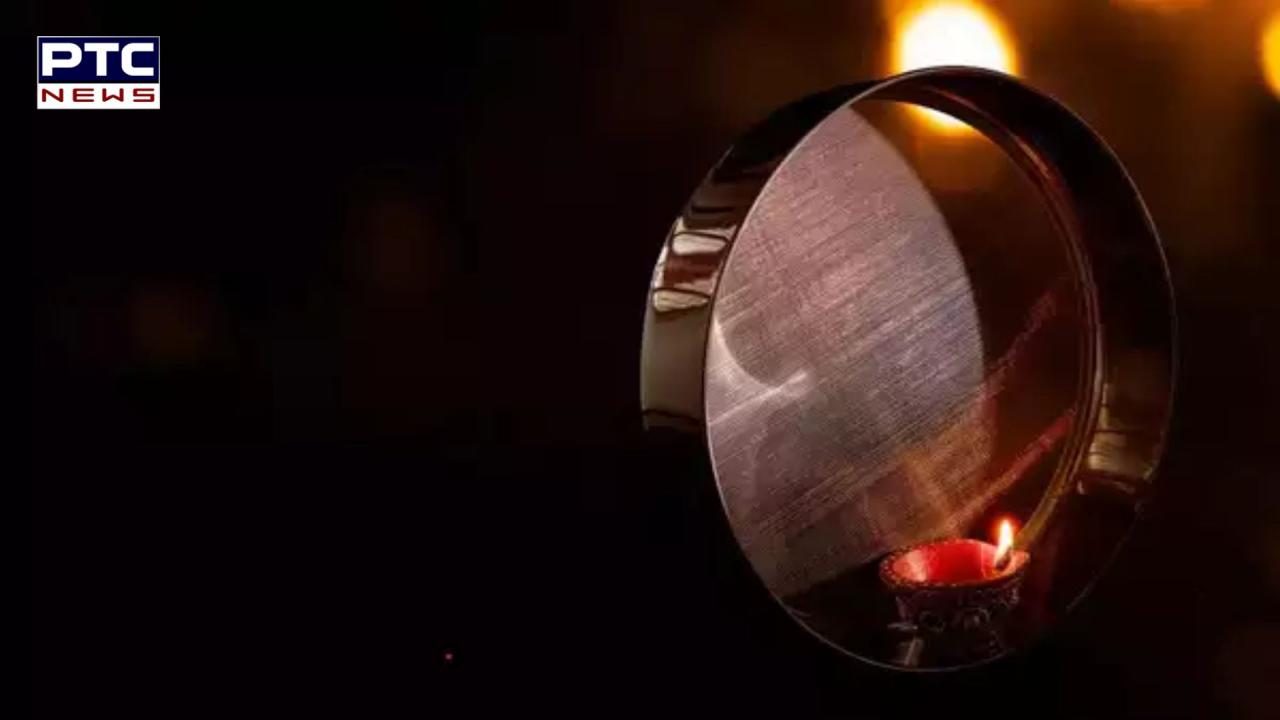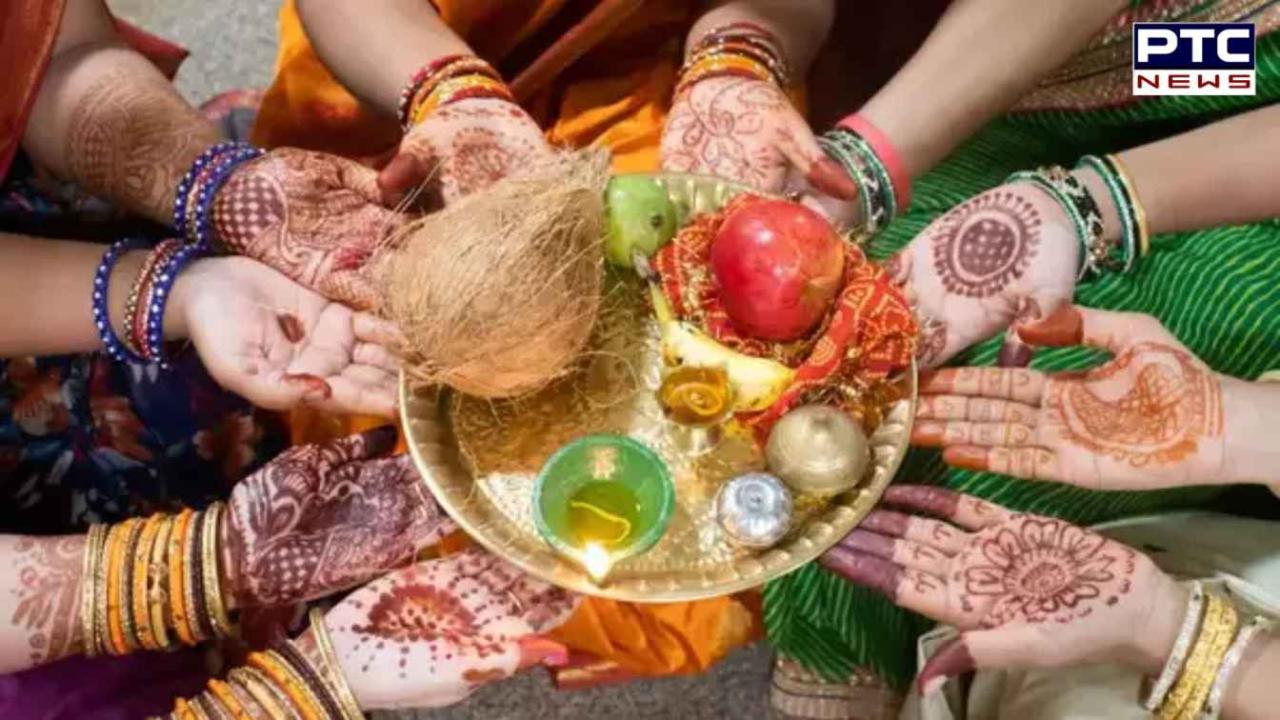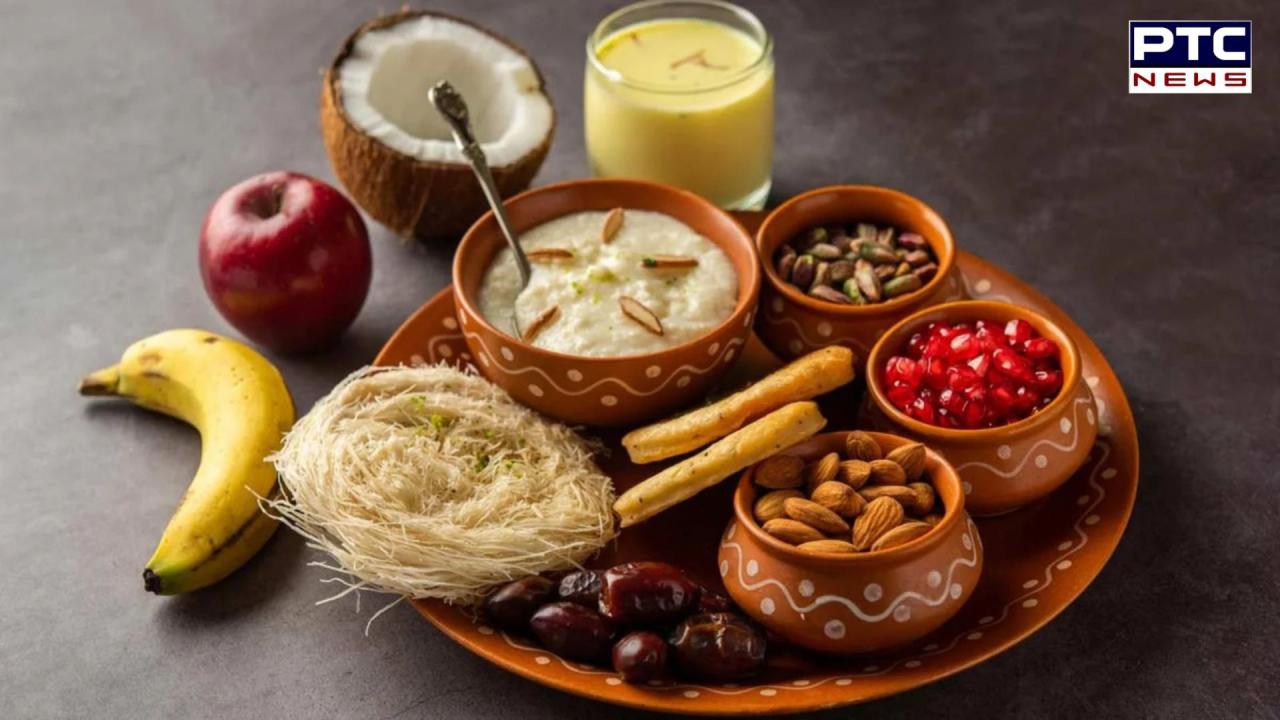

Karwa Chauth 2024: Know moonrise timings and puja muhurat for your city
Karwa Chauth 2024:This year, Karwa Chauth will be celebrated on October 20, marking a significant day in the Hindu calendar, especially for married couples. The festival is characterized by a day-long fast that wives observe for the long life and well-being of their husbands, breaking their fast only after sighting the moon. In 2024, the moon is expected to be visible between 7:50 pm and 9:05 pm, adding a special significance to the occasion.

Karwa Chauth is predominantly celebrated in the northern regions of India and symbolises deep devotion, commitment, and love between spouses. While traditionally observed by married women, the festival has seen a growing participation from men, who now often join their wives in fasting, showcasing a modern shift in marital dynamics.
The term "Karwa" refers to an earthen pot, and "Chauth" signifies the fourth day. Women perform a ritual known as 'Argya' using an earthen pot to honor the moon on the fourth day of Kartik, according to the Hindu lunar calendar. Consequently, Karwa Chauth falls between late October and early November each year.
Numerous stories and legends are associated with Karwa Chauth, with the tale of 'Veeravati' being particularly well-known. According to this ancient legend, Veeravati, a queen and the only sister of seven brothers, observed her first Karwa Chauth after her marriage.
As the day progressed, she grew weak from hunger and thirst, prompting her brothers to devise a plan. They used a mirror to trick her into believing that the moon had risen, leading her to break her fast. Tragically, shortly after, she received news of her husband's death.

Distraught, Veeravati prayed to Mata Parvati, who revealed that her fast was incomplete due to the trickery of her brothers. Realising her mistake, Veeravati observed another fast, pleading with Yama, the god of death, to revive her husband. Once her fast was fulfilled, her husband returned to life, and Veeravati vowed to observe Karwa Chauth every year thereafter.
Another popular story features a devoted wife named 'Karwa,' who bravely confronted a crocodile that had attacked her husband while he bathed in a river. Demonstrating her loyalty and courage, she tied the crocodile with a cotton thread and implored Lord Yama to spare her husband's life. Impressed by her devotion, Yama granted her wish, sending the crocodile to hell in the process.
These stories illustrate the lengths to which women go for their husbands' well-being and exemplify the enduring strength of love.
The rituals of Karwa Chauth have remained unchanged over generations. While many may believe the festivities only involve fasting and moon-gazing, the day begins well before sunrise with a series of rituals that engage the entire family.
The day starts early, with mothers-in-law preparing a nourishing meal known as Sargi for themselves and their daughters-in-law before dawn. This meal typically includes fruits, dry fruits, sweets, parathas, and curries, ensuring the women are well-fed before they commence their fast, which lasts from sunrise to moonrise. This ritual is not only about nourishment; it also fosters a bond between mothers-in-law and daughters-in-law.

Women observe a strict fast without food or water, dedicating their day to prayers for their husbands’ health and longevity. As the day progresses, they dress in their finest attire, usually in shades of red or green, and adorn themselves with jewelry, often gold or platinum, along with henna designs on their hands. The attire symbolises their devotion and love.
As evening approaches, the Karwa Chauth puja takes center stage. Women gather in circles with their beautifully decorated Karwas, filled with water and a small diya, symbolizing light and warmth. During the puja, the narrative of Veeravati, Karwa, or Savitri is recounted, emphasizing the importance of devotion. Women pass the Karwas around while chanting prayers and mantras, seeking blessings for their husbands.
The fast concludes with the sighting of the moon. Women typically go to rooftops or balconies to catch a glimpse of the moon through a sieve or chunni. Afterward, they look at their husbands through the sieve, symbolically transferring blessings. The husbands then offer their wives water and a sweet morsel to mark the end of the fast.
In recent times, there has been a shift in how Karwa Chauth is perceived. Many argue that Bollywood has romanticised the festival, portraying it as a grand occasion filled with love and devotion. This has led to a reevaluation of the traditional portrayal of wives making sacrifices for their husbands.
Additionally, the festival has transcended cultural boundaries, with non-Hindu and non-North Indian families also celebrating Karwa Chauth as a day to honor marital love.
Interestingly, many men are now participating in Karwa Chauth rituals, fasting for their wives as a gesture of mutual love and respect. This evolving tradition highlights a shift in relationship dynamics, where both partners actively contribute to their bond, moving beyond the conventional expectations of gender roles.
As Karwa Chauth approaches, it serves as a reminder of the enduring love, commitment, and evolving traditions that shape the festival, making it a celebration of not only devotion but also mutual respect in marital relationships.
Also Read: Karwa Chauth 2024: 5 key rules for healthy fasting and hydration you need to follow
- With inputs from agencies
